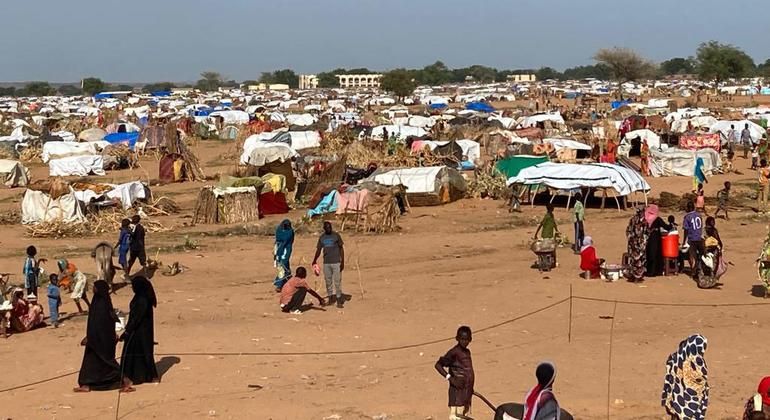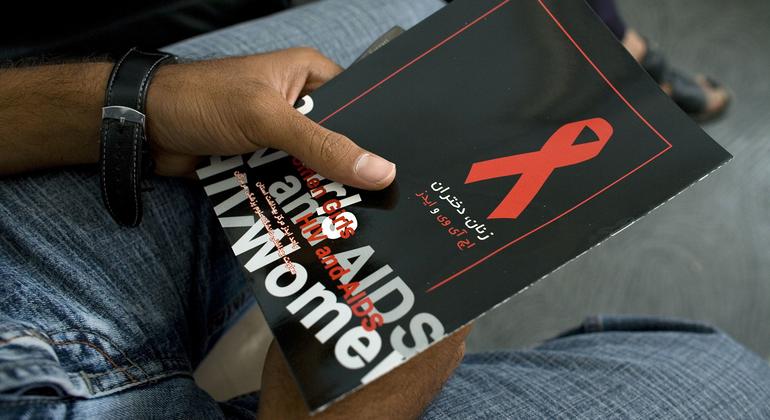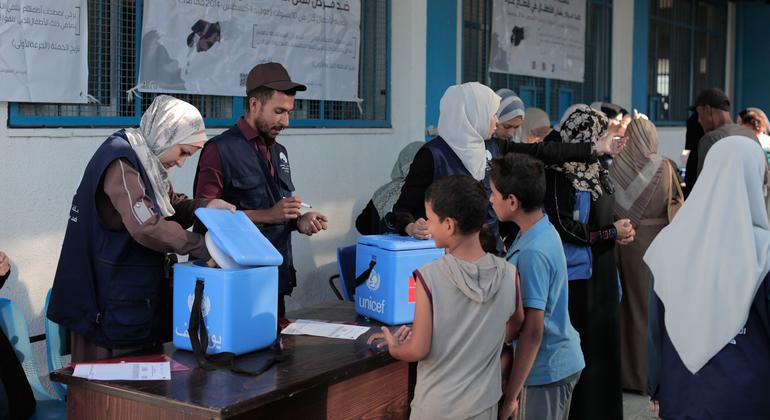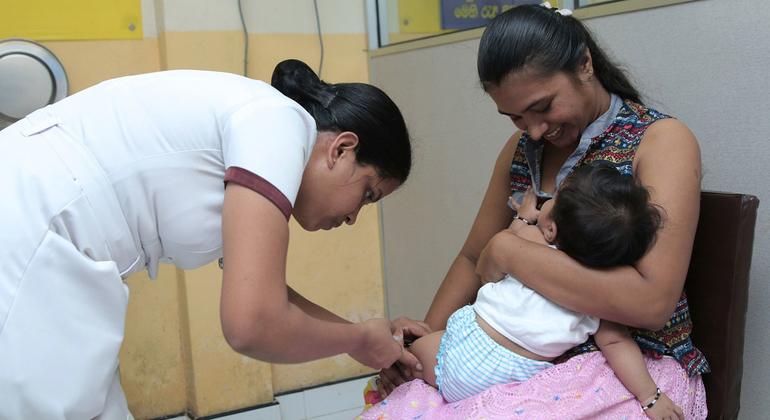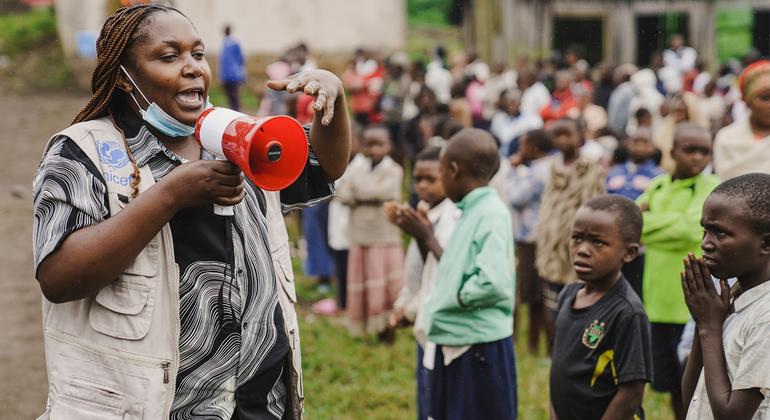Summing up the state of the climate, the month ended with extreme heat in the southern hemisphere where it is summer, while high atypical winter temperatures prevailed in the northern hemisphere.
Parts of North and South America, northwest and southeast Africa, southeast and far eastern Asia, western Australia and Europe recorded record temperatures, either daily or throughout the month of February.
“The anomalous heat is consistent with the persistent warming observed since June 2023, with seven new consecutive monthly global temperature records, including January 2024,” said Álvaro Silva, a climatologist working with the WMO.
Global sea surface temperatures are at record highs, while the El Niño weather pattern “has stoked temperatures in some parts of the world, human-induced climate change is the main long-term contributing factor,” he added.
In contrast, much of northwestern Canada, central Asia – and from southern central Siberia to southeastern China – witnessed exceptional cold during the last week of the month.
Meteorological winter in the Northern Hemisphere and summer in the Southern Hemisphere officially ends at the end of February.
Sudanese continue to flee to Chad: UN refugee agency
The UN Refugee Agency (UNHCR) on Friday expressed growing concern that more refugees will cross into Chad from Darfur in the coming weeks amid a worrying lack of food and other essential items.
Almost a year since the start of the civil war between rival armies in Sudan, neighboring Chad urgently needs more humanitarian aid and significant investment in development, the agency reported, especially in eastern areas hosting the influx of refugees.
This investment will allow the country to continue its generous open-door stance toward refugees.
“Chadian officials are concerned that many more hungry Sudanese families will come in the coming weeks,” said Kelly Clements, UNHCR Deputy High Commissioner, who is in the country to review the aid operation.
“The country is committed to keeping its borders open, despite the fragility of this region. But Doing so will put even more pressure on Chadwho has so kindly been hosting refugees from the Sudan war (which has been raging for almost a year now) and other refugees who are still here from previous emergencies.”
State of emergency
In December, the World Food Program (WFP) suspended rations to some refugee groups in the country due to lack of funds. Subsequently, the Government declared a state of emergency for food and nutritional security.
Food distributions from Chad across the border to Darfur, where the security and safety situation is alarming, have not taken place for more than a month, and cross-border aid was recently suspended.
Women and children make up about 90 percent of all refugees. About 77 percent of the women arrived in Chad alone, with children.
Many have been exposed to gender-based violence, including rape, UNHCR said, and now need comprehensive support. UNHCR provides medical and psychological support, but much more is needed.
“Arrivals have slowed in recent months, but that could change quickly”Ms Clements added. “Even without more things arriving, the needs now far exceed the capacities of humanitarian agencies. There are very real fears facing the border region another miserable lean season before heavy rains hit the camps.”
More than 553,150 new refugees from Sudan had been counted by mid-February, making the country the largest host of refugees fleeing Sudan since the brutal war between government troops and RSF militia broke out in mid-April. 2023.
UNAIDS turns 10th anniversary of Zero Discrimination Day
Progress in promoting equality and justice for all, regardless of gender, sexuality or HIV status, is at risk, said the UN agency dedicated to ending AIDS by 2030, marking Zero Discrimination.
The day of activism was established by UNAIDS ten years ago.
But despite improvements in some societies, attacks on the rights of women and girls, LGBTQ+ people and other marginalized communities are increasing.
“Attacks on rights are a threat to freedom and democracy and are harmful to health. Stigma and discrimination hinder HIV prevention, testing, treatment and care, and slow progress towards ending AIDS by 2030”said Winnie Byanyima, Executive Director of UNAIDS. “Only by protecting everyone's rights can we protect everyone's health.”
At the beginning of the AIDS pandemic 40 years ago, two-thirds of the world's countries criminalized LGBTQ+ people. Today, two-thirds of countries do not do so, the agency noted.
Some 38 countries around the world have committed to ending HIV-related stigma and discrimination and today 50 million more girls are in school than in 2015.
UNAIDS said it was crucial to continue supporting women's movements, LGBTQ+ rights, campaigns for racial justice, economic justice, climate justice and an end to conflict.
The UN is at your side
“As communities around the world defend their rights, the United Nations is not only on their side but also on their side,” the agency said in its statement marking the day.
On that day, and throughout the month of March, events are being organized to remind the world of this vital lesson and call to action: by protecting everyone's health, we can protect everyone's rights.
“By upholding the rights of all, we can achieve the Sustainable Development Goals (SDGs) and ensure a safer, fairer, kinder and happier world for all,” Ms. Byanyima added.

